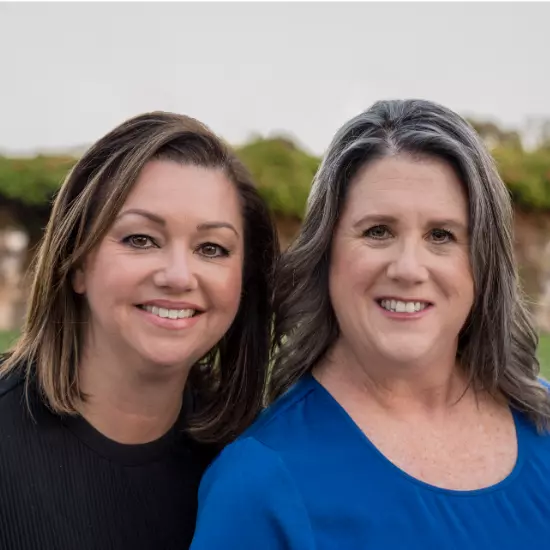Decades long fight for rights
Pedro Rios, a Chula Vista native and lifelong champion for immigrant rights, was recently awarded the Nancy Jamison Social Justice Award in recognition of more than 20 years of tireless work on behalf of immigrant communities and for advancing humane immigration policies.
Now 52 years old, Rios serves as director of the American Friends Service Committee’s U.S.-Mexico Border Program, based in San Diego. The award, which includes a $50,000 grant, will help support various human rights organizations and cover personal and professional needs, including travel for sabbatical, long-overdue home repairs, and new photography equipment for his creative outlet.
Raised and still residing in Chula Vista, Rios shares a home with his wife, Angelica, a professor at Cal State San Marcos. Their two adult children, now 19 and 22, grew up watching their father engage in work rooted in compassion and justice. With a Master’s degree in Ethnic Studies, Rios has committed his life to building a movement that centers the dignity of immigrants, even amid political backlashes and policy reversals.
Looking back, he said the immigrant rights movement has evolved. “We’ve moved away from measuring who’s ‘deserving’ of protection,” he said. “Today, there’s more recognition that everyone, no matter where they’re born, has a right to dignity and respect.”
Yet not all developments have been positive. Rios pointed to growing border militarization, an erosion of asylum rights, and an overall decline in basic protection for migrants. “There’s a white supremacist framework that shapes a lot of current policies,” he said. “It’s dangerous, and it puts lives at risk.”
This climate, he said, has fueled demand for community education, especially “Know Your Rights” workshops. “People are scared. They want to understand how to protect themselves and their families,” he said. “We try to meet that demand, even when it’s emotionally draining.”
Dark Days
Some chapters have been particularly dark as Rios recalled the recent period when migrants were detained in open-air encampments without proper food, shelter, or medical attention. While that situation has improved, increased interior enforcement has renewed fears within immigrant communities.
“We support each other as much as we can, but the stress is real,” he said.
To manage that strain, Rios turns to long-distance running and photography. “Both help me decompress and stay grounded,” he noted.
Receiving the Jamison award, he said, has been humbling and energizing. “I’m grateful,” Rios said. “So many people deserve recognition. I accept it on behalf of my colleagues and the broader community that makes this work possible.”
Some of the funds have already been allocated to the National Network for Immigrant and Refugee Rights, which offers key advocacy and analysis around U.S. immigration policies.
Highlights
One of the most impactful moments in his career came in 2010, when Anastasio Hernández Rojas, a migrant, was beaten to death by border agents in an incident that sparked outrage. “The violence, the impunity—it was horrifying,” Rios said. “Even supervisors were involved, and still, there was no accountability.”
That changed in 2025, when the Inter-American Commission on Human Rights found the U.S. responsible for an extrajudicial killing. For Rios, the ruling signaled a turning point and offered hope that similar cases, such as the death of Breonna Taylor, might also see accountability.
“This decision is about more than one case,” he said. “It shows that justice is possible, even when the odds seem against it.”
Rios said immigrant rights are intertwined with broader struggles for justice and equity.
“Structural violence affects many communities,” he said. “We have to recognize those links if we want to create real change.”
Despite the challenges, he said he finds inspiration in the courage and solidarity of immigrant families. “People organize from a place of love and care. That’s where the power is,” he said.
Looking forward, Rios emphasized the urgent need to reverse policies that criminalize migration and to demilitarize the U.S.-Mexico border. He traced today’s enforcement-heavy approach back to the creation of the Department of Homeland Security in 2003, which began testing raids in cities like San Diego and El Paso—what he called “the laboratories for enforcement.”
He also criticized recent decisions to cancel tools like the CBP One app, which allowed migrants to safely schedule asylum appointments. Without it, thousands are left in limbo. Simultaneously, cuts to USAID funding have weakened shelters in places like Tijuana, compounding an already difficult situation.
For those wondering how they can help, Rios urged people to act locally. “Look around your neighborhood,” he said. “In San Diego, court observers show up to immigration hearings. Some people donate money or time. Others contact their representatives. There are so many ways to contribute.”
He said he remains committed to advocating for immigrant communities, drawing on the strength of those who continue organizing in the face of adversity.
“We still have work to do,” he said, “but we’re not alone.”
Categories
Recent Posts










GET MORE INFORMATION


